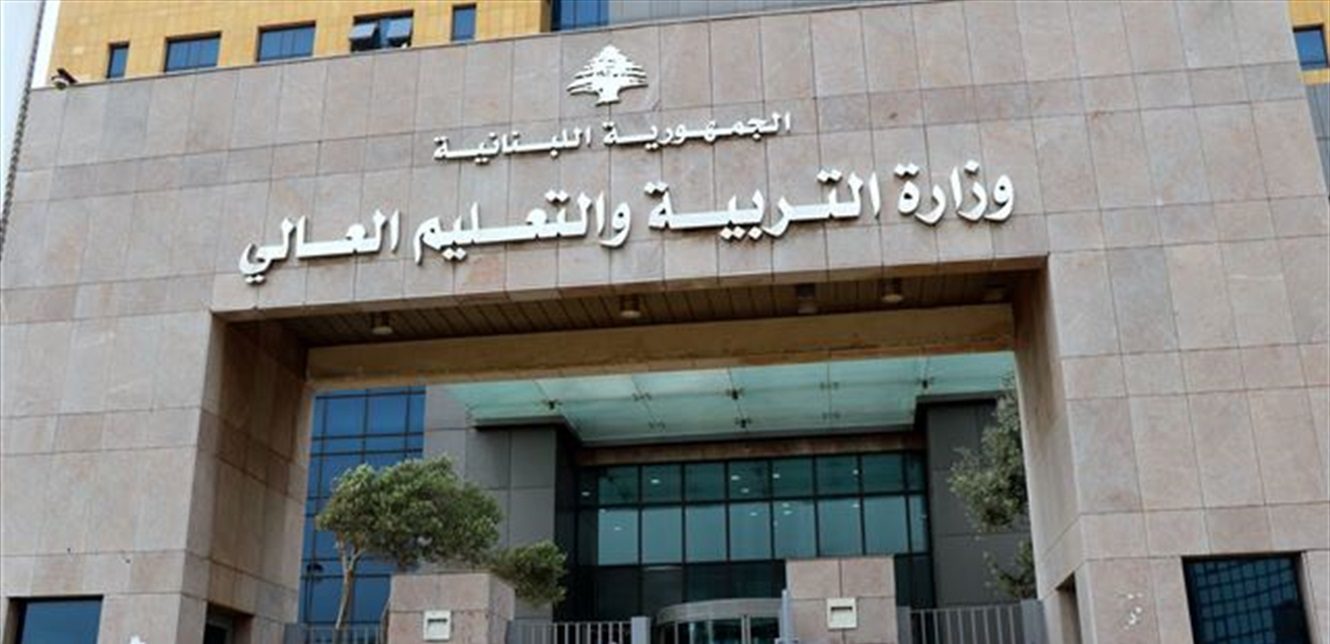بات واضحاً أن إيجارات الشقق والمنازل ارتفعت مع ازدياد حركة النزوح من الجنوب والضاحية الجنوبية لبيروت. وانتقلت عدوى الارتفاع إلى المنازل غير المؤجَّرة بعد، إذ تنتظر “الزبون المناسب”. وحالة الترقُّب تدفع نحو التساؤل حول احتمالات تأثير زيادة الإيجارات على أسعار العقارات ككلّ، مما يرفع أسعار البيع ولا يحصرها ببدلات الإيجار. فيكون القطاع العقاري أمام تضخُّم يرفع أسعار الشقق والأراضي في المستقبل القريب.
أسعار الأزمة والحرب
وما يدعم تحوُّل ارتفاع بدلات الإيجار إلى ارتفاع في أسعار العقارات، هو النظر إلى البدلات من زاوية حسابية بوصفها تعويضاً عن انخفاض الإيجارات وأسعار العقارات الذي رافقَ الأزمة الاقتصادية، فضلاً عن كونها وسيلة لتوفير مداخيل تعوِّض انهيار الرواتب والأجور بالليرة وتدنّي المدولرة منها. فحتى العام 2022 كانت أسعار العقارات قد خسرت بين 40 إلى 50 بالمئة من قيمتها بالدولار، مقارنة مع ما كانت عليه قبل العام 2019. وفي بعض المناطق وصلت الخسارة إلى نحو 70 بالمئة. وحسب تقرير بنك عودة حول القطاع العقاري، الصادر في بداية أيلول 2023 “تقلَّصَ عدد الشراة المحتملين بشكل ملحوظ داخل السوق العقاري، ما نتج عنه ركود في الطلب. ونتيجة الدولرة النقدية للمبيعات، شهد العام 2022 تقلصاً سنوياً في قيمة المبيعات العقارية نسبته 7.7 بالمئة”. وتعود أسباب التراجع إلى “تسعير المبيعات العقارية بشكل كامل بالدولار النقدي وتوقُّف البائعين عن قبول الشيكات المصرفية كوسيلة للدفع”.
وحاوَلَ القطاع الحصول على جرعة تفاؤل في العام 2023 على وقع النشاط السياحي وتوافد المغتربين في فترة الصيف، وترافقَ ذلك مع “سداد المالكين العقاريين ديونهم للمصارف، ولم يعودوا مضطرين لبيع وحداتهم السكنية بشروط بخسة. فتحسّنت أسعار الشقق السكنية تحسّناً خجولاً نسبته 10 بالمئة مقارنة مع العام السابق”. إلاّ أن التحسّن لم يتصاعد، فالحرب اندلعت في تشرين الأول 2023″.
لكن كان يمكن القبول بتبريرات التحوُّل في قيمة العقارات والرواتب، لو أن المسألة ليست مقرونة اليوم بحرب تُحوِّل الجانب الأخلاقي إلى أولوية. فالنازحون الباحثون عن بيوت آمنة، هم بمجملهم عاطلون عن العمل كلياً أو جزئياً، أي ليس لديهم القدرة على دفع إيجارات باهظة. ناهيك بعدم جواز استغلال الظروف الاستثنائية لفرض أكلاف تفوق القيمة الفعلية بنحو 3 أضعاف.
فقّاعة قد تتحوَّل إلى تضخُّم
الخوف من ارتفاع الأسعار في القطاع العقاري وتحوُّله إلى تضخُّم، يحتِّم الوقوف على مفهوم التضخُّم. فيقول الخبير الاقتصادي جاسم عجاقة إنّ “التضخُّم هو ارتفاع الأسعار لفترة زمنية طويلة ومستمرة. أي أن السمة الأساسية للتضخُّم هي ربطها بالزمن. وحتى اللحظة، ما نشهده من ارتفاع للإيجارات لم يحصل لفترة زمنية طويلة. أما إذا استمرّت الحرب لنحو سنة فيمكننا البدء بالحديث عن تضخُّم في الأسعار”. ويلفت عجاقة النظر إلى أن إطلاق صفة التضخُّم على الأسعار يستوجب “بقاء الأسعار مرتفعة بعد انتهاء الحرب. وإذا عادت إلى ما كانت عليه قبل الحرب، فيتم وضع الارتفاع في خانة الفساد واستغلال الأزمة وليس التضخُّم”.
ويلتقي عجاقة في نظرته للقطاع العقاري في ظل الحرب، مع ما يؤكّده المطوِّر العقاري ورئيس مجلس إدارة شركة بلاس بروبرتيز Plus Properties جورج شهوان، الذي يقول لـ”المدن”، إنّ أسعار العقارات “ما زالت على حالها، وما تغيَّر هو بدلات الإيجار، وهي لم تتحوَّل بعد إلى ارتفاع في أسعار العقارات وإلى تضخُّم في القطاع. بل ما يجري هو عملية مرحلية تحصل لفترة زمنية ليست طويلة الأمد ويفترض أن تعود الأمور إلى ما كانت عليه”. ويستبعد شهوان الوصول إلى مرحلة التضخُّم لأن “مَن يترك الجنوب لا يطلب شراء العقار وإنما استئجاره لفترة مؤقّتة. وفي حال تطوّرت الحرب واستدعت وجود طلبات لشراء العقارات، فحينها يمكن الحديث عن تضخُّم ربطاً بارتفاع الأسعار”. وعلى ضوء ما يحصل، يؤيّد شهوان “تدخُّل الدولة عبر البلديات لمنع انفلات ارتفاع بدلات الإيجار وتحوُّله إلى ارتفاع لأسعار العقارات، لأن المسألة اليوم لا تتمّ وفق آلية العرض والطلب”.
والنفيّ المرحلي لصفة التضخُّم، يُبقي الباب مفتوحاً أمام صفة “الفقّاعة”، ولذلك، يمكن اعتبار ارتفاع بدلات الإيجارات بأنه “فقاعة عقارية” انطلاقاً من المُبالَغة في زيادة أسعار العقارات لاستغلال الأزمة وتحصيل الأموال، أو لعدم الرغبة في تأجير نازحين من بيئة وطائفة معيّنة، وهو أمر لا ينسحب على أسعار العقارات الذي يُعرَض على مختلف الزبائن ويكون شبه موحَّد ضمن المنطقة الجغرافية الواحدة.
إمكانية خفض بدلات الإيجار
الركون إلى استبعاد التضخُّم حالياً، لا يلغي ضرورة لجم الارتفاع الكبير لبدلات الإيجار، تلبية للحقّ الإنساني بالسكن والحق بالحماية من الاستغلال، خصوصاً وأن البدلات المفروضة لا تُعَبِّر عن القيمة التأجيرية الحقيقية للمنازل.
وأمام مطالبة المواطنين بتدخُّل الدولة لمنع الاستغلال، تؤكّد مصادر في وزارة الاقتصاد “عدم اختصاص الوزارة في هذه الحالات، وإن من باب حماية المستهلك، لأن الشقق المؤجَّرة ليست مؤسسات تجارية، وبحسب القانون لا يمكن الدخول إلى المنزل من دون قرار قضائي. وصاحب المنزل ليس تاجراً مسَجَّلاً. ولذلك، أسرع حلّ يمكن أن يكون عبر تدخُّل البلديات كسلطة محلية”.
وكان لافتاً للنظر إصدار محافظ مدينة بيروت القاضي مروان عبود بلاغاً إلى مالكي الشقق السكنية في مدينة بيروت يدعو فيه إلى “مراعاة الظروف وعدم الاستغلال ورفع قيمة الإيجار ووضع الشروط كما تقتضيه الأخوَّة والمواطنة”. أما في حال استغلال بعض مالكي الشقق السكنية ظروف النازحين وتأجيرها بقيمة أعلى من قيمتها التأجيرية الفعلية، “ستعتمد بلدية بيروت هذه القيمة كمعيار للقيمة التأجيرية للشقة المؤجرة في حال إشغال العقار من قبل المالك سنداً لأحكام قانون الرسوم والعلاوات البلدية”. أي أن مالك الشقة سيدفع رسم القيمة التأجيرية للبلدية بناءً على بدل الإيجار المفروض على المستأجِر.
ولتأكيد سلطة البلديات في هذا المجال، تنصّ المادة 5 من القانون رقم 60 تاريخ 12-8-1988 المتعلّق بالرسوم والعلاوات البلدية، على أنه “يدخل في مفهوم القيمة التأجيرية كل ما يتقاضاه أو يحصل عليه المؤجِّر من المستأجر نقداً أو على شكل منفعة. وتشمل بدلات الإيجار الأساسية… وبدلات الخدمات التي يقدِّمها المؤجِّر للمستأجر كالتدفئة والتبريد والماء الساخن وتسيير المصاعد الكهربائية وسواها…”.
وعليه، فإن البلديات يمكنها لعب دور أساسي في إعادة الأمور إلى نصابها في ما يخصّ بدلات الإيجار والمساهمة في عدم تحويل الارتفاع إلى تضخُّم في الأسعار فيما لو طالَ أمد الحرب وفَرَضَت في حينها معطيات جديدة تستدعي الاستئجار لفترات أطول أو شراء العقارات.
المصدر: خضر حسان – المدن
With the Ongoing War: Rising Rents Evoke the Specter of Real Estate Inflation
It has become clear that the cost of renting apartments and homes has surged with the increase in displacement from the south and southern suburbs of Beirut. This rise has even affected unleased properties that are still waiting for the “right client,” raising questions about how increased rental prices could influence overall real estate values, potentially driving up property prices and not just rental costs. Thus, the real estate sector may face inflation that could elevate the prices of apartments and land in the near future.
Crisis and War Prices
What supports the shift from rising rental costs to increased property prices is viewing rents as a compensation for the drop in rental rates and real estate prices during the economic crisis. Rents have become a way to offset the collapse of salaries and wages in Lebanese pounds and the decline in dollarization. Up until 2022, real estate prices had lost between 40% to 50% of their value in dollars compared to pre-2019 levels, with some areas experiencing up to a 70% decrease. According to a Bank of Auda report released in early September 2023, “the number of potential buyers has significantly decreased in the real estate market, leading to a slowdown in demand. As a result of dollarization in sales, there was a 7.7% annual decrease in real estate sales value in 2022.” This decline is attributed to “pricing real estate sales entirely in cash dollars and sellers' refusal to accept bank checks.”
The sector sought optimism in 2023 with the increase in tourism and the return of expatriates during the summer. This was coupled with property owners paying off their debts to banks, leading them to no longer be compelled to sell their properties under unfavorable conditions. Consequently, residential property prices improved modestly by 10% compared to the previous year. However, this improvement did not escalate as the war erupted in October 2023.
Inflation vs. Speculative Bubble
The fear of rising real estate prices turning into inflation necessitates understanding inflation. Economist Jassem Ajaka explains that “inflation is the prolonged and continuous increase in prices. The primary characteristic of inflation is its link to time. So far, the rise in rents has not occurred over a long period. If the war continues for a year, we can start talking about inflation in prices.” Ajaka emphasizes that the term inflation should apply to prices that remain high after the war ends. If prices revert to pre-war levels, the increase should be considered exploitation of the crisis rather than inflation.
Developer and CEO of Plus Properties, George Shawwan, shares this perspective on the real estate sector during the war. He states, “Real estate prices remain the same, and what has changed are rental costs. These have not yet transitioned into a rise in real estate prices and inflation in the sector. What is happening is a temporary phase that should revert to normal once the situation stabilizes.” Shawwan doubts that the market will reach an inflationary phase since “people leaving the south are looking to rent rather than buy properties temporarily. If the war evolves and prompts a demand for property purchases, then inflation could be discussed.” Given the current situation, Shawwan supports “state intervention through municipalities to prevent uncontrolled rental increases from leading to higher real estate prices, as the matter is not governed solely by supply and demand.”
Potential for Lower Rental Costs
Excluding inflation currently does not eliminate the need to curb significant rental increases to meet the human right to housing and protection from exploitation, especially since the imposed rents do not reflect the true rental value of homes.
In response to citizens' demands for state intervention to prevent exploitation, sources in the Ministry of Economy confirm “the ministry's lack of jurisdiction in these cases, even from a consumer protection standpoint, as rental properties are not commercial entities, and according to the law, entry to homes requires a judicial order. Property owners are not registered traders.” Therefore, the fastest solution might be local municipal intervention.
It was noteworthy that the Beirut Governor, Judge Marwan Abboud, issued a directive to property owners in Beirut urging them to “consider the circumstances and avoid exploitation by raising rents and setting conditions as dictated by brotherhood and citizenship.” If some property owners exploit the situation by charging higher rents than the actual rental value, “the Beirut Municipality will use this value as a benchmark for the rental value of the property in case of occupation by the owner according to municipal fees and charges law.” This means that property owners will pay municipal rental fees based on the imposed rent.
To affirm the municipalities' authority in this area, Article 5 of Law No. 60 dated 12-8-1988 regarding municipal fees and charges states, “The rental value includes everything the landlord receives from the tenant in cash or in kind. This includes basic rents and service fees provided by the landlord to the tenant such as heating, cooling, hot water, elevator operation, and others.”
Thus, municipalities can play a crucial role in restoring order to rental prices and preventing an increase from turning into real estate inflation if the war persists and new conditions necessitate longer-term rentals or property purchases.
translated by international scopes team
 سكوبات عالمية إقتصادية – EconomyScopes إجعل موقعنا خيارك ومصدرك الأنسب للأخبار الإقتصادية المحلية والعربية والعالمية على أنواعها بالإضافة الى نشر مجموعة لا بأس بها من فرص العمل في لبنان والشرق الأوسط والعالم
سكوبات عالمية إقتصادية – EconomyScopes إجعل موقعنا خيارك ومصدرك الأنسب للأخبار الإقتصادية المحلية والعربية والعالمية على أنواعها بالإضافة الى نشر مجموعة لا بأس بها من فرص العمل في لبنان والشرق الأوسط والعالم




